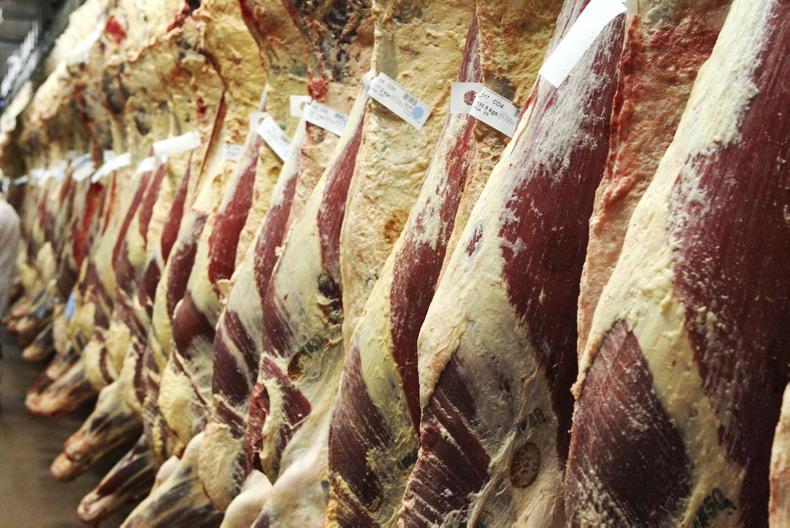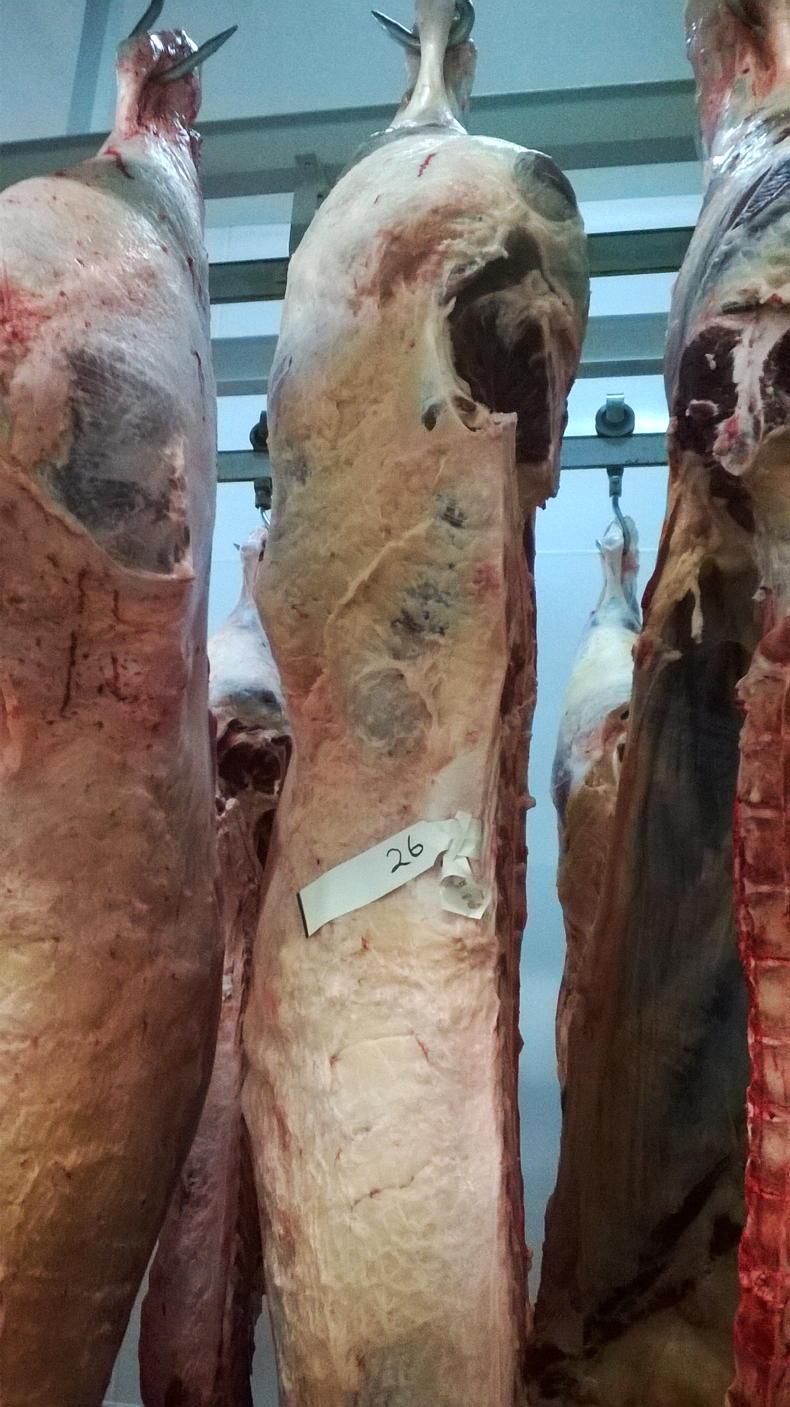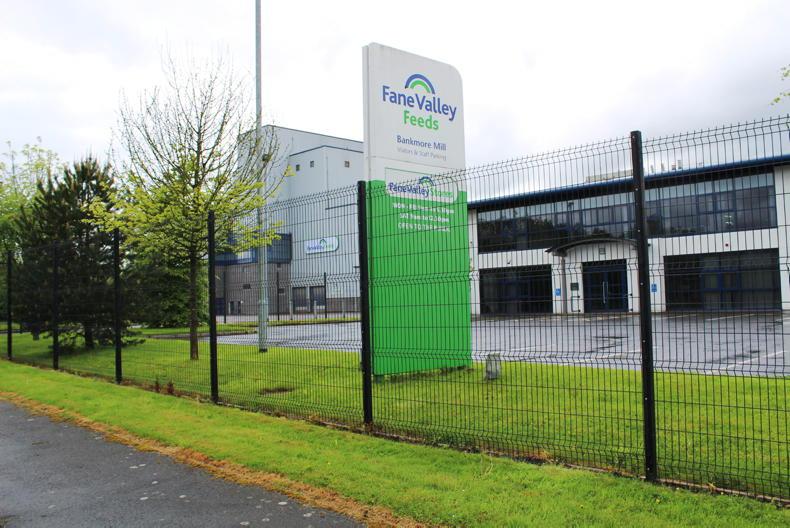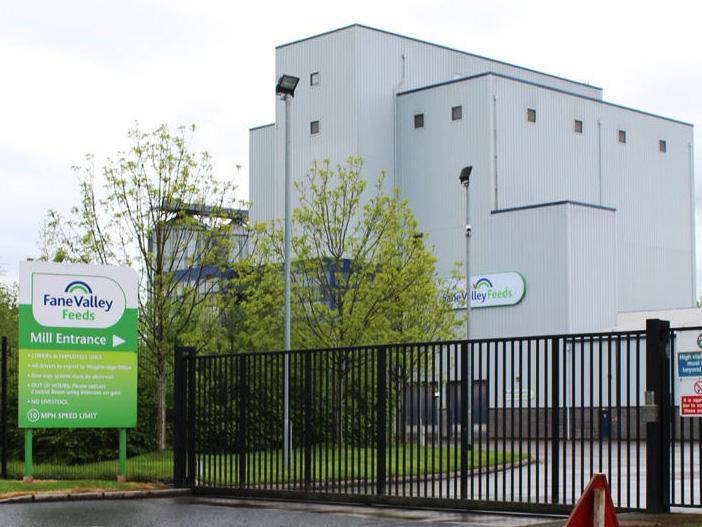Fane Valley Co-op, which operates a number of businesses across Ireland, has undergone significant change in recent years, starting with the sale of its Armaghdown Creameries business based outside Banbridge in Co Down to Lakeland Dairies in 2016.
In the same year, Fane Valley entered into a joint venture (JV) with ABP Food Group, after the Goodman-owned company agreed to purchase the 50% shareholding held by the Allen family in Slaney Foods and Irish Country Meats (ICM).
Linden has one of the largest slaughterhouses in NI, a small abattoir in the north of England and it owns the Fermanagh-based Kettyle Irish Foods
That relationship was extended in 2017 to include a JV between ABP and Fane Valley in the Linden Foods business in NI.
Operating from Dungannon, Co Tyrone, Linden has one of the largest slaughterhouses in NI, a small abattoir in the north of England and it owns the Fermanagh-based Kettyle Irish Foods.
End of large-scale meat processing
In May 2021, it was confirmed that ABP is to acquire the remaining 50% share held by Fane Valley in Slaney, ICM and Linden. That deal is expected to be concluded in early October 2021, and will bring an end to Fane Valley’s interests in high-volume meat or dairy processing.
For a co-op that started out life in 1903 purchasing milk off farmers in Armagh and Monaghan, it is a significant change of direction.
“As a primary food processor, if you are to compete in the international marketplace and secure the higher returns available, you need scale,” points out Fane Valley chief executive Trevor Lockhart.
the Fane Valley board saw the opportunity to secure new customers and drive efficiencies in their new relationship with ABP
While the co-op could have pursued a deal with the Allen family back in 2016, even if successful, it would still have been a small player when compared to the likes of Dawn, ABP and Kepak.
Instead, the Fane Valley board saw the opportunity to secure new customers and drive efficiencies in their new relationship with ABP.
However, Lockhart accepts that a JV often ends up being temporary, and one business eventually buys out the other.
While there has been a significant amount of rationalisation in beef and dairy processing in the UK and Ireland, he believes there is more to come.
Co-ops are about more than money
“Of course, for a farmer-owned co-op, decisions are based on more than just financial considerations. But we also have to be realistic, and too many co-ops have failed having veered too far from commercial fundamentals,” he maintains.
Looking at the individual businesses within the Fane Valley portfolio, those realities are clear. For the year ending 30 September 2020, Linden Foods reported operating profits of £2.15m (€2.48m), up slightly on the £2.09m (€2.41m) from the previous year.
With turnover at £208.96m (€241.01m), it leaves an operating profit margin at a thin 1.02%, slightly reduced from the 1.04% for the previous year.
Operating profits were up slightly at £3.38m
The simple fact is that other parts of Fane Valley deliver higher margins. The largest business by turnover is Fane Valley Feeds, which reported sales of £74.55m (€85.99m) for the year ending September 2020.
Operating profits were up slightly at £3.38m (€3.9m), leaving an operating profit margin at a solid 4.53%.
Fane Valley business portfolio
Elsewhere, the Fane Valley network of agri-stores has operating profits at £1.73m (€1.99m) and profit margin at 4.2%, while the Whites Speedicook oats business in Tandragee Co Armagh, delivered operating profits of £505,988 (€583,608).
Fane Valley group also owns two small specialist secondary meat processing businesses in NI – Duncrue Food Processors and Hilton Meat Products. In 2019, it added Monaghan-based duck processor, Silver Hill Foods and Donegal-based feed company, Smyths Daleside, along with its subsidiary, Burke Shipping Services.
Combined, these Fane Valley companies (excluding meat processing) had a turnover of £190.6m (€219.83m), and delivered an operating profit of £10.45m (€12.05m) for the year ending September 2020.
Adding to that is the share of the operating profit from the JV with ABP, and the share of profits from the interest held by Fane Valley in Dungannon-based animal rendering company Linergy. Combined, these businesses delivered an additional £3.82m (€4.40m) in operating profit, leaving Fane Valley co-op with a profit after tax of £12m (€13.84m), more than double the £5.7m (€6.57m) from the previous year. With profits up, over £24m (€27.68m) of cash in the bank, and net assets of nearly £109m (€125.72m), the Fane Valley balance sheet is strong, and there is scope to invest.
Core business
“Being an input supplier to primary agriculture is a core business for us. We want to develop our specialism in that sector, growing scale and the range of technical support services,” says Lockhart.
However, while the co-op is moving away from high-volume meat and dairy, it still intends to continue in wider food processing.
“We are working in specialist areas of the market, where we can add value or supply products with a point of difference. We want to focus on businesses that offer a specialist niche where scale or international presence is less critical to future success,” he adds.
Brexit a problem for business
Trevor Lockhart told the Irish Farmers Journal that there are two problems with Brexit for Fane Valley and the wider food industry in Northern Ireland.
There is a labour issue, he believes, which was largely masked during the COVID-19 lockdown as a significant proportion of the workforce had been laid off in other businesses, plus there is a very obvious problem with logistics due to a shortage of EU drivers.
Lockhart contends that the fundamental problem with the protocol is an old rulebook being used to fix a new problem.
He believes a risk-based technological solution can be developed but this requires the political will on the part of the EU and UK government to make it happen.
Fane Valley Co-op, which operates a number of businesses across Ireland, has undergone significant change in recent years, starting with the sale of its Armaghdown Creameries business based outside Banbridge in Co Down to Lakeland Dairies in 2016.
In the same year, Fane Valley entered into a joint venture (JV) with ABP Food Group, after the Goodman-owned company agreed to purchase the 50% shareholding held by the Allen family in Slaney Foods and Irish Country Meats (ICM).
Linden has one of the largest slaughterhouses in NI, a small abattoir in the north of England and it owns the Fermanagh-based Kettyle Irish Foods
That relationship was extended in 2017 to include a JV between ABP and Fane Valley in the Linden Foods business in NI.
Operating from Dungannon, Co Tyrone, Linden has one of the largest slaughterhouses in NI, a small abattoir in the north of England and it owns the Fermanagh-based Kettyle Irish Foods.
End of large-scale meat processing
In May 2021, it was confirmed that ABP is to acquire the remaining 50% share held by Fane Valley in Slaney, ICM and Linden. That deal is expected to be concluded in early October 2021, and will bring an end to Fane Valley’s interests in high-volume meat or dairy processing.
For a co-op that started out life in 1903 purchasing milk off farmers in Armagh and Monaghan, it is a significant change of direction.
“As a primary food processor, if you are to compete in the international marketplace and secure the higher returns available, you need scale,” points out Fane Valley chief executive Trevor Lockhart.
the Fane Valley board saw the opportunity to secure new customers and drive efficiencies in their new relationship with ABP
While the co-op could have pursued a deal with the Allen family back in 2016, even if successful, it would still have been a small player when compared to the likes of Dawn, ABP and Kepak.
Instead, the Fane Valley board saw the opportunity to secure new customers and drive efficiencies in their new relationship with ABP.
However, Lockhart accepts that a JV often ends up being temporary, and one business eventually buys out the other.
While there has been a significant amount of rationalisation in beef and dairy processing in the UK and Ireland, he believes there is more to come.
Co-ops are about more than money
“Of course, for a farmer-owned co-op, decisions are based on more than just financial considerations. But we also have to be realistic, and too many co-ops have failed having veered too far from commercial fundamentals,” he maintains.
Looking at the individual businesses within the Fane Valley portfolio, those realities are clear. For the year ending 30 September 2020, Linden Foods reported operating profits of £2.15m (€2.48m), up slightly on the £2.09m (€2.41m) from the previous year.
With turnover at £208.96m (€241.01m), it leaves an operating profit margin at a thin 1.02%, slightly reduced from the 1.04% for the previous year.
Operating profits were up slightly at £3.38m
The simple fact is that other parts of Fane Valley deliver higher margins. The largest business by turnover is Fane Valley Feeds, which reported sales of £74.55m (€85.99m) for the year ending September 2020.
Operating profits were up slightly at £3.38m (€3.9m), leaving an operating profit margin at a solid 4.53%.
Fane Valley business portfolio
Elsewhere, the Fane Valley network of agri-stores has operating profits at £1.73m (€1.99m) and profit margin at 4.2%, while the Whites Speedicook oats business in Tandragee Co Armagh, delivered operating profits of £505,988 (€583,608).
Fane Valley group also owns two small specialist secondary meat processing businesses in NI – Duncrue Food Processors and Hilton Meat Products. In 2019, it added Monaghan-based duck processor, Silver Hill Foods and Donegal-based feed company, Smyths Daleside, along with its subsidiary, Burke Shipping Services.
Combined, these Fane Valley companies (excluding meat processing) had a turnover of £190.6m (€219.83m), and delivered an operating profit of £10.45m (€12.05m) for the year ending September 2020.
Adding to that is the share of the operating profit from the JV with ABP, and the share of profits from the interest held by Fane Valley in Dungannon-based animal rendering company Linergy. Combined, these businesses delivered an additional £3.82m (€4.40m) in operating profit, leaving Fane Valley co-op with a profit after tax of £12m (€13.84m), more than double the £5.7m (€6.57m) from the previous year. With profits up, over £24m (€27.68m) of cash in the bank, and net assets of nearly £109m (€125.72m), the Fane Valley balance sheet is strong, and there is scope to invest.
Core business
“Being an input supplier to primary agriculture is a core business for us. We want to develop our specialism in that sector, growing scale and the range of technical support services,” says Lockhart.
However, while the co-op is moving away from high-volume meat and dairy, it still intends to continue in wider food processing.
“We are working in specialist areas of the market, where we can add value or supply products with a point of difference. We want to focus on businesses that offer a specialist niche where scale or international presence is less critical to future success,” he adds.
Brexit a problem for business
Trevor Lockhart told the Irish Farmers Journal that there are two problems with Brexit for Fane Valley and the wider food industry in Northern Ireland.
There is a labour issue, he believes, which was largely masked during the COVID-19 lockdown as a significant proportion of the workforce had been laid off in other businesses, plus there is a very obvious problem with logistics due to a shortage of EU drivers.
Lockhart contends that the fundamental problem with the protocol is an old rulebook being used to fix a new problem.
He believes a risk-based technological solution can be developed but this requires the political will on the part of the EU and UK government to make it happen.









SHARING OPTIONS